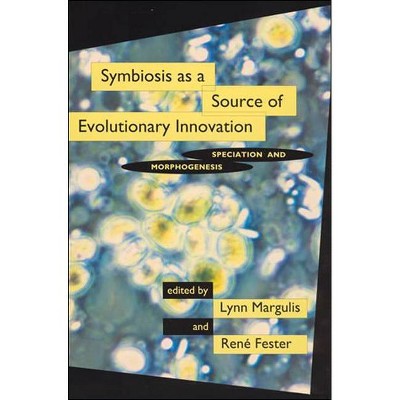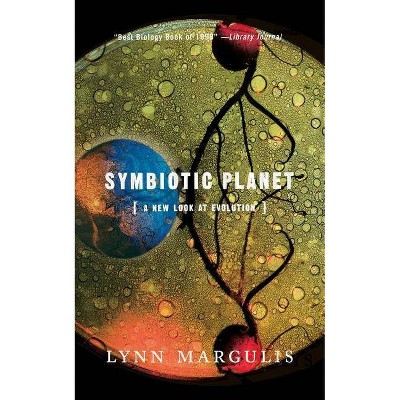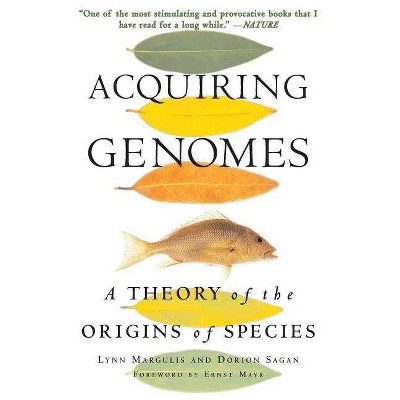Symbiosis as a Source of Evolutionary Innovation - (Mit Press) by Lynn Margulis & Rene Fester (Paperback)

Similar Products
Products of same category from the store
AllProduct info
<p/><br></br><p><b> About the Book </b></p></br></br>These original contributions by symbiosis biologists and evolutionary theorists address the adequacy of the prevailing neo-Darwinian concept of evolution in the light of growing evidence that hereditary symbiosis, supplemented by the gradual accumulation of heritable mutation, results in the origin of new species and morphological novelty.<p/><br></br><p><b> Book Synopsis </b></p></br></br><b>These original contributions by symbiosis biologists and evolutionary theorists address the adequacy of the prevailing neo-Darwinian concept of evolution in the light of growing evidence that hereditary symbiosis, supplemented by the gradual accumulation of heritable mutation, results in the origin of new species and morphological novelty.</b><p>A departure from mainstream biology, the idea of symbiosis--as in the genetic and metabolic interactions of the bacterial communities that became the earliest eukaryotes and eventually evolved into plants and animals--has attracted the attention of a growing number of scientists.</p><p>These original contributions by symbiosis biologists and evolutionary theorists address the adequacy of the prevailing neo-Darwinian concept of evolution in the light of growing evidence that hereditary symbiosis, supplemented by the gradual accumulation of heritable mutation, results in the origin of new species and morphological novelty. They include reports of current research on the evolutionary consequences of symbiosis, the protracted physical association between organisms of different species. Among the issues considered are individuality and evolution, microbial symbioses, animal-bacterial symbioses, and the importance of symbiosis in cell evolution, ecology, and morphogenesis. Lynn Margulis, Distinguished Professor of Botany at the University of Massachusetts at Amherst, is the modern originator of the symbiotic theory of cell evolution. Once considered heresy, her ideas are now part of the microbiological revolution. </p><p><b>Contributors<br></b>Peter Atsatt, Richard C. Back, David Bermudes, Paola Bonfante-Fasolo, René Fester, Lynda J. Goff, Anne-Marie Grenier, Ricardo Guerrero, Robert H. Haynes, Rosmarie Honegger, Gregory Hinkle, Kwang W. Jeon, Bryce Kendrick, Richard Law, David Lewis, Lynn Margulis, John Maynard Smith, Margaret J. McFall-Ngai, Paul Nardon, Kenneth H. Nealson, Kris Pirozynski, Peter W. Price, Mary Beth Saffo, Jan Sapp, Silvano Scannerini, Werner Schwemmler, Sorin Sonea, Toomas H. Tiivel, Robert K. Trench, Russell Vetter</p><p/><br></br><p><b> About the Author </b></p></br></br>Lynn Margulis (1938-2011) was Distinguished Professor of Botany at the University of Massachusetts at Amherst. An evolutionary theorist and biologist, science author, and educator, Margulis was the modern originator of the symbiotic theory of cell evolution. Once considered heresy, her ideas are now part of the microbiological revolution. <p/>René Fester is a graduate student in the biological sciences at Northern Arizona University.
Price History
Price Archive shows prices from various stores, lets you see history and find the cheapest. There is no actual sale on the website. For all support, inquiry and suggestion messagescommunication@pricearchive.us



















